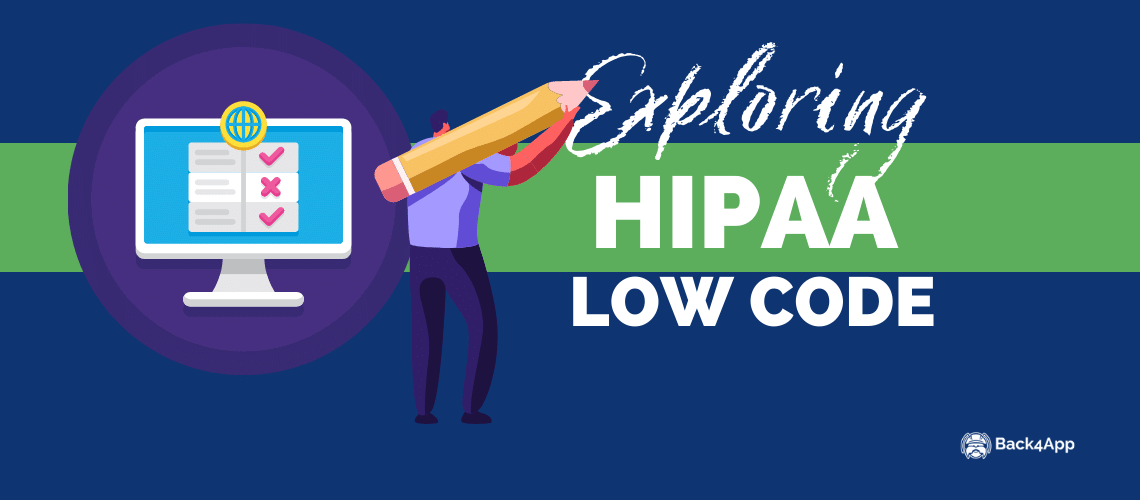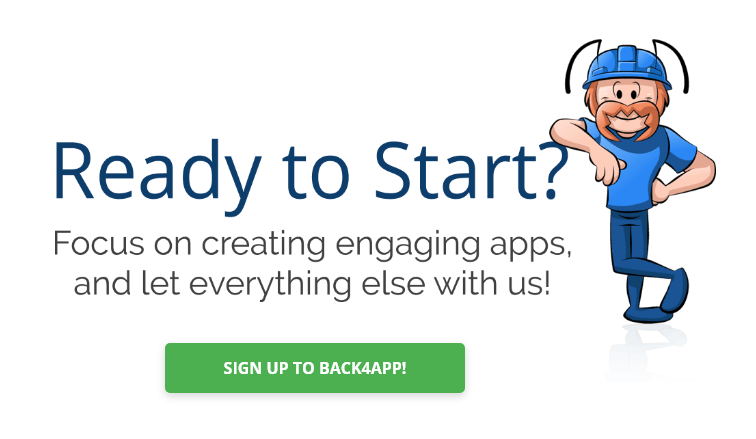HIPAA Low Code – Secrets Unlocked

Are you looking for a HIPAA-compliant low-code solution? Here is a thorough guide describing the advantages and limitations of using a low-code platform to process PHI data.
This article will shortly explain HIPAA, its prerequisites, the type of data protected, covered entities, and the mandated legal arrangements with low-code providers. Additionally, it will examine the advantages and limitations of using a low-code development platform to create applications and host PHI data.
Contents
- 1 Low-code overview
- 2 The 101s of HIPAA compliance
- 3 The benefits of low-code in creating a HIPAA-compliant system?
- 4 Are you searching for a HIPAA-compliant low-code platform?
- 5 Conclusion
- 6 FAQ
- 7 What is HIPAA?
- 8 Why use a low-code platform to create HIPAA-compliant applications?
- 9 Which low-code provider supports HIPAA?
Low-code overview
Low-code platforms are a cloud service that helps developers and organizations accelerate development via ready-to-use construction blocks and handles the underlying server infrastructure.
The most common features of a low-code solution will include:
- A graphical user interface.
- Ready-to-use elements.
- APIs.
- Visual modeling tools.
- Drag and drop
- Scalable infrastructure.
- Out-of-the-box security.
Also, low-code platforms usually allow users to customize the platform and add lines of code for specific situations. This way, low-code solutions deliver an Excel spreadsheet’s flexibility and the software system’s scalability.
A low-code platform delivers a quicker development process, a more effective development team, and lower engineering costs. The limitations constitute a more rigid programming environment and restrictions on server-level access.
The 101s of HIPAA compliance
The HIPAA regulation has been available for more than 25 years, and it started in 1996. The regulation requires healthcare-related providers like hospitals, clinics, pharmacies, etc., to protect patient data.
The elements of a HIPAA compliance program include written procedures and policies, a compliance officer, training, monitoring, auditing, responding to data breaches, etc.
HIPAA does not treat cloud providers, including low-code platforms, the same way as the Covered Entities, i.e., healthcare providers, health plans, and clearing houses.
HIPAA considers cloud providers as Business Associates and demands a BAA – Business Associate Agreement to binding the relationship with Covered Entities legally.
Generally speaking, a BAA will require that the Business Associate to adequately safeguard the protected health information it obtains or makes on behalf of the covered entity.
According to HIPAA regulations, there is no certification for cloud providers like low-code solutions. Covered Entities and low code providers will operate under a shared responsibility model.
The benefits of low-code in creating a HIPAA-compliant system?
HIPAA prerequisites to make healthcare solutions are complicated, execution demands much software engineering effort, and it’s challenging to conduct.
The healthcare industry can profit from utilizing low-code platforms to host HIPAA-regulated health data. Generally speaking, it will be easier to implement security and compliance for application development.
For example, low-code platforms automate tasks like encrypting data at transit and rest, disaster recovery and backups procedures, etc.
Healthcare organizations can develop application at a fraction of the time and expedite digital transformation. Low-code platforms usually support web and mobile applications and are qualified for both implementations.
Outsourcing HIPAA hosting a low-code provider preserves time, reduces costs and detours the annoyances of enforcing each step directly on an infrastructure provider or on-premises.
Are you searching for a HIPAA-compliant low-code platform?
Back4App is an exceptional alternative for creating hospital applications, patient portals, general healthcare software, etc.
The company uses AWS – Amazon Web Service as the underlying infrastructure and adopts safeguards like multi-region backups, data encryption, redundant servers, and hosts the data in the United States.
More information of safeguards available on Back4App are detailed below:
- Infrastructure
Back4App employs Amazon Web Services’ infrastructure to process, store, and transfer PHI data. As a software as a service solution, Back4App has a BAA with AWS, and entities utilizing Back4App will complete a BAA with us.
- Data Encryption at rest and in transit
HIPAA requires encrypting the protected health information when the data is at rest and in transit.
It means that Back4App employs encryption to store data, files, images, etc. Data transfer within Back4App’s infrastructure will occur using encryption certificates to guarantee no PHI data transits without proper safeguards.
- Disaster & Recovery
Back4App’s HIPAA environment can operate on various AWS regions to provide business continuity if an entire region becomes nonfunctioning.
- Data replication
To deliver a reliable and highly available infrastructure, Back4App operates a fully-redundant environment. It offers a database cluster with two or more virtual machines synchronizing data. It also sustains a cluster with two or more machines handling the business logic.
- Two-factor authentication
Two-Factor authentication is a procedure that requires the user to have two confirmation components to access an account.
Conclusion
HIPAA has produced data privacy and security provisions for protecting health information since 1996. It protects medical information like the patient’s name, social security, birth date, address, physical and mental conditions, etc.
Organizations covered by the HIPAA act doing business with non-regulated players like low-code platforms must sign a BAA describing the rules controlling the association and safeguards to protect health information.
The article also described the type of contract needed between a Covered Entity and a low-code platform and the benefits of using low-code for HIPAA execution.
For further information on how to use low-code for a medical application, please schedule a meeting with a representative using this link or contact us via [email protected].

FAQ
What is HIPAA?
The HIPAA regulation requires healthcare-related providers like hospitals, clinics, pharmacies, etc., to protect patient data.
Why use a low-code platform to create HIPAA-compliant applications?
Healthcare companies can develop application at a fraction of the time. For example, low-code platforms automate tasks like encrypting data at transit and rest, disaster recovery and backups procedures, etc.
Which low-code provider supports HIPAA?
Back4App is an exceptional alternative for creating hospital applications, patient portals, general healthcare software, etc.



